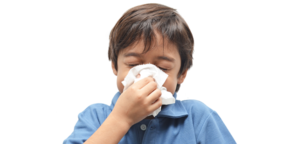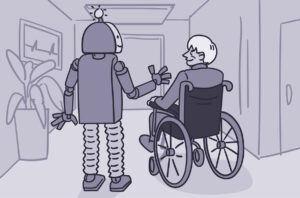Emergency Room Questions: Why You Shouldn’t Eat or Drink Until You See the Physician
Drinking or eating before a doctor’s visit can lead to unexpected complications. If you have already made an appointment to see a physician, it will be essential to ensure that you do not eat or drink anything for 8-12 hours before your checkup. In case you are on medication for an existing condition, the best thing to do will be to take it with a few sips of water.
At Frontline ER, we like to emphasize the fact that no drink or food indeed implies that you should not take either. It means staying away from water and snacks: failure to comply with this simple rule may lead to the postponing of your appointment and for more serious treatments, e.g., surgeries; they may have to get canceled altogether.
Reasons Not to Drink or Eat Before Seeing the Physician
There exist various reasons why your doctor may ask you not to drink or eat anything before your appointment. Some of these have something to do with the possibility of you developing a severe complication that may be caused by having fluids or food in your stomach when certain routine examinations are being carried out.
Aspiration
Ever taken a bite out of a particular food item, only for it to end up going down the wrong pathway? That is what we here at Frontline ER call aspiration. In situations where aspiration occurs when you are wide awake, the result is vomiting, gagging, or coughing—the good news being that the food eventually ends up being expelled from your airway.
It is possible for saliva or the fluids and foods that you consume to cause aspiration. When a patient is already under anesthesia, it may fail to react because the muscles have already become paralyzed as you are unconscious. It also means that it is not possible for you to cough up whatever it is that is causing the aspiration. Although aspiration is typical when a patient is under general anesthesia, it may also occur when you are too sick or too sedated to protect your airway.
The Bowel Prep Will Likely Be Ruined
You do not know what your doctor will be examining you for: this means that if the Frontline ER doctors decide to check your gastrointestinal system; the presence of fluids or drinks is likely to complicate the examination. It may also lead to the development of an infection. Be advised that drinking or eating before a necessary physical or internal body examination can lead to its cancelation.
There are cases where the physician may want to perform a bowel preparation. The process involves emptying all the contents of your digestive tract. Doctors commonly carry out this procedure when a patient has to undergo a surgical operation. As such, drinking or eating anything after the bowel preparation can undo all the time and effort spent in emptying the contents of your digestive tract.
Nausea and Vomiting
As our Frontline ER physicians will inform you, certain complications are likely to arise after you have undergone certain types of treatment. For instance, nausea and vomiting are very common in patients who have just had an operation performed on them. These are complications that are often easier to stop as opposed to trying to treat or control them once they have started.
Although there are numerous kinds of medications that can be used to treat vomiting and nausea, the best thing to do is to try and prevent their occurrence. It is through emptying your stomach before any treatment.
Food Intake Leading Up to Your Doctor’s Appointment
In cases where you already know that you are a few hours or days away from the appointment with your physician, you should try to take lean foods that are rich in proteins, e.g., beans/tofu, pork, seafood, or chicken. You should also consider introducing low-fat dairy products into your daily diet.
Proteins are a vital part of the healing process. Also, try to hydrate by taking as much water as possible. Continue hydrating until you notice that your urine has been clear or colorless. Drinking lots of water help in making you feel energetic. It also helps ensure that you will be able to tolerate all the probing that is likely to be performed by the physician during the appointment.
However, ensure that you stick to the time limits stated above. All this has to happen before the eight hours to the twelve-hour mark. It is the only way to guarantee that your appointment with your physician will go as intended and that you will both get conclusive results that can help determine what has gone wrong in your body.
The risks associated with drinking and eating when you have already been instructed not to do so are higher than you might imagine. Be sure to follow all these instructions, and your next appointment with our Frontline ER physicians will be a breeze.




